| Umělec magazine 2013/1 >> The Nigerian Connection: On NSK Passports as Escape and Entry Vehicles | List of all editions. | ||||||||||||
|
|||||||||||||
The Nigerian Connection: On NSK Passports as Escape and Entry VehiclesUmělec magazine 2013/121.10.2013 19:23 Inke Arns | africa | en cs |
|||||||||||||
|
NSK is a state without borders and without space, located exclusively in time — which hasn’t discouraged aspiring immigrants from trying to acquire one of its passport. German curator Inke Arns set out for Nigeria in order to explain to applicants the nature of this art project. Did she succeed? Hard to say.
In late July 2010, Borut Vogelnik and Miran Mohar, two members of the IRWIN group and representatives of the NSK State in Time, and myself, curator, artistic director of Hartware MedienKunstVerein (HMKV), and diplomat of the NSK State in Time, set out on a trip to Lagos, Nigeria. Invited by the Centre of Contemporary Art (CCA) Lagos, and supported by the Goethe-Institute, we travelled to West Africa for the first time. Our reasons were diplomatic. For some time, the NSK Država v času (NSK State in Time), a state without territory founded in 1991 as an artistic response to the independence of Slovenia and to the subsequent war(s) in ex-Yugoslavia, had received a very substantial number of requests for citizenship, especially from Nigeria. When in 2006/2007 the requests manifested in the form of e-mails and telephone calls to individual representatives and diplomats of the NSK State in Time, and to representatives of the Republic of Slovenia, a general feeling of panic started to arise. What was going on? Why were Nigerian citizens suddenly so desperately eager to get NSK passports — and even to use them seriously for travel? Was it possible that the Nigerian applicants took the concept of the NSK State in Time more seriously than its founders, i.e. that they “overidentified” with it — an artistic/political strategy developed to perfection by Laibach/NSK in 1980s Yugoslavia?1 What if the Nigerians who already were in the possession of a NSK passport would take the promise of the passport seriously and would really start travelling with it? What if they got into serious trouble at the border, possibly leading to their arrest? The NSK passport could either have been considered a fake document, or it could have been considered an authentic document, i.e. a real passport. Using it in either way could be considered a criminal act; in the first case because forged documents are considered illegal and in the latter because carrying two passports could, at times, create problems for Nigerian citizens.2 Noticing the rising number of requests from Nigeria from 2005-2006 onwards, the Republic of Slovenia urged the artists to post information on the NSK website saying that “NSK citizenship does not equal Slovenian citizenship” and that an “NSK passport does not allow its holder to enter the Schengen zone.” However, publishing this information on the website did not improve the situation. The demand for NSK passports kept rising.
From Dortmund to Lagos In April 2009, Hartware MedienKunstVerein (HMKV) located in Dortmund, Germany, participated in the Goethe-Institute’s exchange programme Cultural Managers from Africa in Cultural Institutions in Germany. For two weeks, Hansi Loren Momodu, curatorial assistant of CCA Lagos, was a guest at HMKV’s offices, observing the practical work that is being done at a German Kunstverein with a focus on media based artistic practices. The Goethe Institute is always keen on follow-up projects (a kind of sustainability!) and at the end of Hansi’s stay we started thinking about possible options for future cooperations. I said that unfortunately I had no links to Africa, and that there was nothing that connected me specifically to Nigeria. The very moment I said this it occurred to me that this was not true at all. There was indeed something that connected me to Nigeria — even if only indirectly. But it made it all the more interesting. I told Hansi in detail about NSK’s ‘immaterial state.’ In addition to its temporary embassies and consulates materializing from time to time in various places, the NSK State in Time issues passports as a “confirmation of temporal space” (NSK), which can be obtained by any person irrespective of citizenship or nationality. I told her about the fact that these passports were being printed at the same printing house as the real, authentic passports of the Republic of Slovenia, and how hugely popular NSK passports had become especially amongst Nigerians. Holding one quarter of all NSK passports issued since 1991, Nigerians today represent the largest single group (approx. 25%) of citizens of the NSK State. I also told her that the state’s founder artists were extremely worried that people might use the NSK passport for purposes for which it was not intended and that people might have great expectations of being able to travel, to leave Africa and to come to Europe. I also explained that there were continuous e-mails and telephone calls from Nigeria asking for information how to organise, where to go and whom to contact once they arrived. Finally, that the state’s founding artists were afraid that the NSK passports were traded on the black market and that people paid horrendous sums to shady middlemen who were promising that this document would allow people to travel and that it was their entrance ticket to the First World. What a disillusionment it would be when they found out that this was not the case at all. Hansi agreed that it was time for the state’s founding artists to travel to Nigeria and see the situation for themselves — and if necessary take measures to inform the unsuspecting Nigerian NSK passport holders. Provided there were any.
“Be home before sunset”: Lagos, Nigeria I arrived at Murtala Mohammed International Airport in Lagos more than one year later, at eight o’clock in the evening. It was pitch-dark. A city of 20+ million inhabitants in one of the oil-richest countries in the world with no street lights at night. As I learned later, Lagos is a megalopolis without a functioning electricity network. Eddy, who would be our driver for the entire week, was waiting for me at the airport. He welcomed me warmly. As we drove along the highway from the airport to the city centre, pedestrians were constantly crossing the street in total darkness, suddenly looming up in front of our car illuminated only by the headlights. At one point Eddy said: “See the big cars at the side of the street?” Tank-like armoured vehicles stood half covered at intervals of 300 meters. “Police,” Eddy said, “some years ago it was normal to get robbed on the street leading from Lagos airport to downtown. Things have gotten much better lately.” I was very happy to hear this. It took me a moment before I realized the significance of what he just had said. Miran Mohar and Borut Vogelnik from IRWIN had arrived some days earlier, and had already familiarised themselves with the surroundings.3 They were in the midst of conducting interviews with Nigerian NSK passport holders and applicants at the CCA Lagos. The CCA is a truly amazing place — virtually the only place for contemporary art in the entire city of Lagos. It exists thanks to the initiative of one single woman, Bisi Silva, who not only generates the funds to run the centre but who also donated her entire library to the centre, transforming the upper floor into a small public library focussing on contemporary art and theory. The lower floor is usually used for exhibitions and workshops. The one week CCA event Towards a Double Consciousness: NSK Passport Project which took place from July 26th - 31st 2010 consisted of screenings, lectures and panel discussions. The final panel discussion on July 31st addressed the “Nigerian connection” of the NSK State and discussed the significance of the State created in Europe in the 1990s in contemporary African consciousness.4 The announcement and outline for this discussion read: “Since the initial presentations around the world in the 1990s of State in Time the project is currently receiving a substantial number of requests for citizenship of the NSK ‘State’ from Africa especially from Nigeria. This has resulted in many Nigerians assuming a dual identity as holders of NSK and Nigerian passports. In view of these new developments IRWIN conducted interviews with African/NSK citizens living in London, to ascertain their reasons for applying. Could it be in support of the initial artistic purpose of NSK? Do they see it as an avenue with which to move from one territory to another? Or is it for other socio-political reasons? Towards a Double Consciousness: NSK Passport project will allow further debate on both the artistic and political implications of the NSK State in Time action, offering an examination of their original artistic interventions within the Nigerian context. (...) Towards a Double Consciousness attempts to interrogate the way in which artists propose and individuals search for alternative — real or fictional — possibilities that goes beyond notions of a fixed identity or geography.”5 The NSK Passport project which took place in the framework of On Independence and The Ambivalence of Promise, CCA, Lagos’s year long programme celebrating 50 years of the independence of seventeen African countries, proved to be a truly intense and simultaneously ambivalent experience — certainly for the three of us, but also, in different intensity, for the CCA Lagos team (Bisi Silva, Hansi Momodu, Jude Anogwih). Suddenly in Lagos, two of the NSK State‘s founders who had always thought of the State as an abstract concept and an intellectual tool were confronted with a position that no longer maintained a ‘safe‘, ironic distance to the promise made by a document like the NSK passport. They found themselves in a situation where they felt it was necessary to speak in a very clear and direct manner about what their state was and what it was not, and what its passport could and could not do. Ambivalence and irony did not prove to be helpful tools in a situation where the genuine fear was that the expectations attached to a document — acquired directly from the artists or possibly bought on the black market for a huge amount of money — would soon prove to be false promises. During the two hour discussion at the CCA it became clear that what once had been conceived as an ‘escape vehicle‘ has — in the understanding of the Nigerian applicants and passport holders — transformed into something like an ‘entry vehicle,‘ or at least the promise of such. Originally, the NSK State was founded as an alternative to an exclusively national (Slovene) identity the artists were confronted with when Slovenia seceded from Yugoslavia. It was conceived as almost the opposite of the new Republic of Slovenia which had declared its independence in 1991. As an artistic state concept, it defined itself neither through a concrete geographical territory, nor through an ethnically fixed Staatsnation (nation state). For the definition of a proper ‘spiritual’ territory the concept of NSK emphasises the notion of time. The notion of time was understood as a new productive category for the definition of space. Within this terminology, time was equated with the individual accumulation of experiences. Irwin and Eda Čufer defined this new “geography of time” as follows: “The real (...) ‘fatherland’ of the individual is limited (...) to the circle of his own individual experience, to that which exists and not that he was born into.”6 Therefore, the “territorial borders of the NSK state can by no means be equated with the territorial borders of the actual state in which NSK originated.”7 Rather, the NSK State in Time is defined as an abstract body whose borders are in a state of constant flux, depending on the activities of its physical and symbolic body, and whose territory is situated in the consciousness of its ‘members.’ Eda Čufer and Irwin define the State in Time as follows: “The NSK state in time is an abstract organism, a suprematist body, installed in a real social and political space as a sculpture comprising the concrete body warmth, spirit and work of its members. NSK confers the status of a state not upon territory but upon the mind, whose borders are in a state of flux, in accordance with the movements and changes of its symbolic and physical collective body.”8 The State issues passports as a “confirmation of temporal space.” There are many instances where fiction crosses into reality — like the story about NSK using the same passport printing house as the Republic of Slovenia. Telling this story in Lagos, Nigeria, during the panel discussion, with about twenty-five Nigerian applicants or passport holders eagerly waiting for any kind of proof for the ‘real’ potential of the passport proved to be feeding exactly into the economy of expectations that the NSK state founders originally came to Lagos to discourage. Also, telling these amazing — and actually true — stories about people from Sarajevo who crossed international borders during the second half of the 1990s with nothing other than the NSK ‘document’ would have been problematic.9 That is why these stories were not mentioned once in the panel discussion in Lagos. Even if these (few) cases really did happen, it just did not feel right to mention them, as they could easily be read as ‘proofs’ of (the legality of) the passport as a valid travel document which it was worth investing large amounts of money for on the black market. Miran Mohar and Borut Vogelnik very explicitly discussed the reason for creating the NSK State in Time in the early 1990s, and about what the passport was and was not meant to do. They stressed that the NSK State in Time is not an existing country and that it should by no means be confused with the actual Republic of Slovenia, which in turn has been a member state of the European Union since 2004. Towards the end of the event we were convinced that the audience had ‘understood the initial artistic concept’ of NSK. However, at the very end of the panel discussion, two memorable statements were voiced. “A friend of mine,” said a member of the audience, “has a friend who knows somebody who has already been there. He said that it is a beautiful country.” Shame on us who had thought that the roller coaster of emotions had ended! The Irwin members once more explained patiently that the NSK State in Time is a state of mind rather than an existing state one can travel to in the sense that it is possible to travel to Slovenia, with which the NSK State in Time is not to be confused. The ultimate — and positively devastating — statement came from a young man with stylish 1970s sunglasses who had been sitting silently through the whole event. He said: “Listen, I think that everybody in this room perfectly understood what you have been telling us over the last two hours [meaning: don’t you Europeans think we Africans are stupid!]. But, still, I think that holding an NSK passport is a good thing. Because the NSK State in Time could come into being at some point in the future, you know?”
“Lock your doors, I will not stop”: The NSK passport and Nigerian 419 scam Lagos Island, located just opposite Lagos Mainland, is a huge gated community for the very rich - the upper class of Nigerian society as well as expats working for big international oil companies exploiting the oil wells of the Niger delta. The property prices are way beyond imagination — way beyond anything you know from Paris, London, Tokyo or the like. The three highway bridges connecting the island to the mainland are guarded by heavily armed police forces dressed in splendid uniforms. One night, we stayed out until after sunset. Leaving the bar around 22:30, Eddy drove us back from Lagos Island to the Mainland where our hotel was located. It was pitch-dark, again. Suddenly, on Lagos Mainland, lit only by our car lights, we saw a group of young men dancing onto the street in front of our car. “Lock your doors,” Eddy said calmly, as he closed the automatic car windows, “I will not stop.” He decelerated a little, but did not stop. Luckily, we did not hit anybody. A few days after this incident, an artist at the CCA told us that on that very night he had made the mistake of stopping his car at the same spot. He was robbed — the thieves used the exact same “dancing onto the street trick” and took his money and his photo camera. Imagine, if only one out of every five hundred cars stops. Possibly one car in five hundred will also hit a body — but that’s the risk, I guess, of what Giorgio Agamben has called ‘bare life.’ That one successful car in a sea of failed attempts suddenly reminded me of the logic of e-mail spam, or more precisely of something called the “Nigerian Letter,” “419 fraud,”10 or “Nigerian bank scam.” Here, it is millions of e-mails that are sent out onto the Internet — and one of the recipients will answer, and will fall for the advance fee fraud.11 The 419 scam originated in the early 1980s as the oil-based Nigerian economy declined. Several unemployed university students first used this scam as a means of manipulating business visitors interested in shady deals in the Nigerian oil sector before targeting businessmen in the west, and later the wider population. Advance-fee fraud boomed in Nigeria as government corruption and an economic downturn during the 1990s fuelled poverty and disillusionment in the country, says Insa Nolte of the University of Birmingham’s Centre of West African Studies. To some, Internet scams looked like an easy way to bag some quick cash. Scammers in the early-to-mid 1990s targeted companies, sending scam messages via letter, fax, or Telex. The spread of e-mail and easy access to e-mail-harvesting software significantly lowered the cost of sending scam letters by using the Internet.12 “The availability of e-mail helped to transform a local form of fraud into one of Nigeria’s most important export industries,”13 Nolte says. Is it possible that the NSK passport is read by local Nigerian audiences as some kind of 419 scheme? As some promise of an unexpected fortune waiting out there — which you just have to grab by advancing a small fee? Or, formulated differently, do people believe in the NSK passport because one such passport could hit such a one in five hundred improbable opportunity? Did the Nigerian applicants and passport holders seriously consider the NSK passports — originally conceived as escape vehicles — as entry vehicles which would allow them to cross international borders? Ultimately, we did not find out. But we realized that the power of believing, even if only supported by rumours, is able to move mountains, even against better judgment, and that it is a force to be considered. On our last day in Nigeria, a Sunday, Eddy invited us to attend church at Redemption Ministries, Lagos. Before the service, a business seminar addressing the question “Where to find money?” took place between 8 and 9 in the church made up of half-finished walls and a make-shift corrugated metal roof. When during the service — after the preacher had warned insistently against “witches in the household” — members of the parish got up one after the other with their arms raised and speaking in tongues, it occurred to me that this was a pentecostal church believing not so much in Jesus or God the father, but in the Holy Spirit which takes possession of the community members’ bodies and tongues during the service. And here, it occurred to me that in this context the NSK passport functioned not so much as a “confirmation of temporal space” but as a material vessel for something spiritual that by simply believing in it can transform into something real. It is neither of these — or, rather something in between that does not need to take sides. It exists, simply because people have heard rumours about it and because they are convinced that at some point it might come in handy if they were already in the possession of legal travel documents. A utopian-pragmatic position, so to speak, that trusts in the power of believing.
Written in late July / early August 2011
Originally published in: State of Emergence. A Documentation of the First NSK Citizens’ Congress, Ed. Alexei Monroe, Leipzig: Plöttner Verlag, 2011. The congress took place in Haus der Kulturen, Berlin, October 2010.
1 On the strategy of overidentification see Inke Arns: “Mobile Staaten / Bewegliche Grenzen / Wandernde Einheiten. Das slowenische Künstlerkollektiv Neue Slowenische Kunst (NSK),” in: Netzkritik: Materialien zur Internet-Debatte, ed. by nettime / Geert Lovink, Pit Schultz, Berlin: Edition ID-Archiv 1997, pp. 201-211; Inke Arns: Neue Slowenische Kunst (NSK) – eine Analyse ihrer künstlerischen Strategien im Kontext der 1980er Jahre in Jugoslawien, Regensburg: Museum Ostdeutsche Galerie 2002; Inke Arns, Sylvia Sasse: “Subversive Affirmation. On Mimesis as Strategy of Resistance,” in: East Art Map. Contemporary Art and Eastern Europe, ed. by IRWIN, MIT Press 2006, pp. 444-455; “Subversive Affirmation,” ed. by Inke Arns / Sylvia Sasse, Maska, Vol. XIX/ 3-4 (98-99) / 2006, Ljubljana 2006.
21.10.2013 19:23
Recommended articles
|
|||||||||||||
|
04.02.2020 10:17
Letošní 50. ročník Art Basel přilákal celkem 93 000 návštěvníků a sběratelů z 80 zemí světa. 290 prémiových galerií představilo umělecká díla od počátku 20. století až po současnost. Hlavní sektor přehlídky, tradičně v prvním patře výstavního prostoru, představil 232 předních galerií z celého světa nabízející umění nejvyšší kvality. Veletrh ukázal vzestupný trend prodeje prostřednictvím galerií jak soukromým sbírkám, tak i institucím. Kromě hlavního veletrhu stály za návštěvu i ty přidružené: Volta, Liste a Photo Basel, k tomu doprovodné programy a výstavy v místních institucích, které kvalitou daleko přesahují hranice města tj. Kunsthalle Basel, Kunstmuseum, Tinguely muzeum nebo Fondation Beyeler.
|







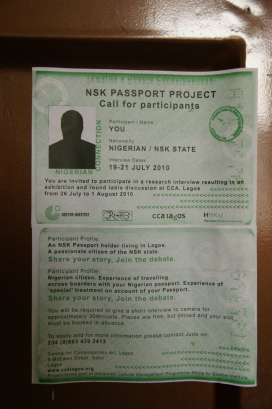
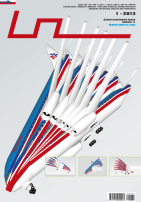





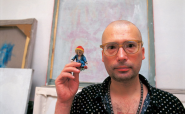
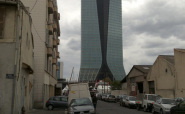
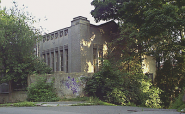
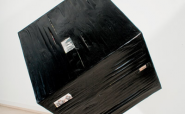
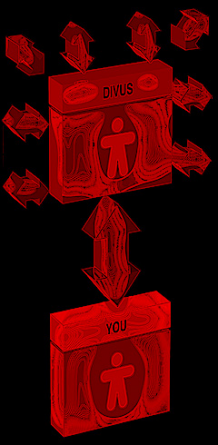











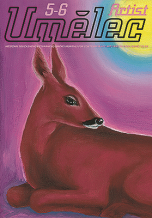
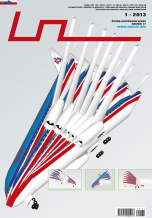
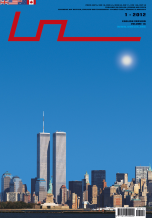
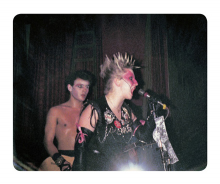


 New book by I.M.Jirous in English at our online bookshop.
New book by I.M.Jirous in English at our online bookshop.
Comments
There are currently no comments.Add new comment